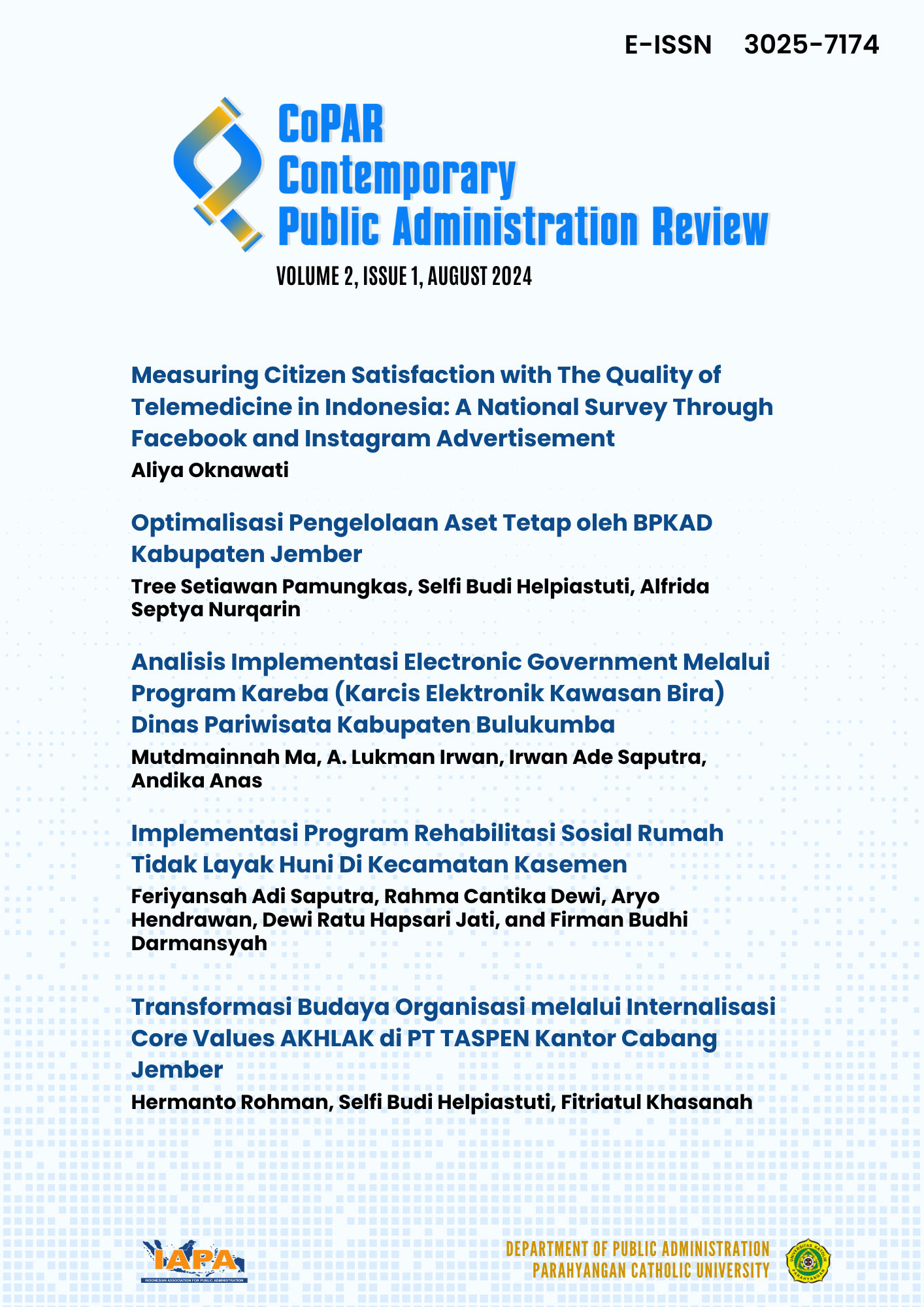Measuring Citizen Satisfaction with The Quality of Telemedicine in Indonesia: A National Survey Through Facebook and Instagram Advertisement
DOI:
https://doi.org/10.26593/copar.v2i1.7995.1-15Keywords:
Telemedicine, Digital Transformation, Citizen-SatisfactionAbstract
Telemedicine leverages ICT to digitally transform and revolutionize healthcare delivery systems. The objective of digitizing health services is to enhance the quality of public services. Therefore, telemedicine must provide the same upgraded quality as conventional delivery. Although telemedicine has the potential to revolutionize healthcare, it must deliver the same high standards as traditional methods. The COVID-19 pandemic underscored the need for improved metrics to gauge satisfaction with digital health services. This study evaluates Indonesian citizens' satisfaction with telemedicine using the Healthcare Quality Indicators (HCQI) from the Organisation for Economic Co-operation Development, along with additional indicators relevant to Indonesia, including effectiveness, data security, privacy, responsiveness, accessibility, psychological safety, platform fees, and extra costs. An exploratory, descriptive qualitative research design was employed, with data collected via an online survey promoted through Facebook and Instagram, yielding 1,165 responses over 12 days. The analysis was conducted using NVivo 12 software. The results reveal that telemedicine services in Indonesia are generally considered "successful," with an average satisfaction rate of 89%. However, patient data security and privacy were identified as significant concerns, with satisfaction in these areas falling below the critical threshold of 58.30%. This indicates a pressing need for improvements in data protection and privacy to better meet user expectations.
Downloads
Published
How to Cite
Issue
Section
License
Copyright (c) 2024 Contemporary Public Administration Review

This work is licensed under a Creative Commons Attribution 4.0 International License.





